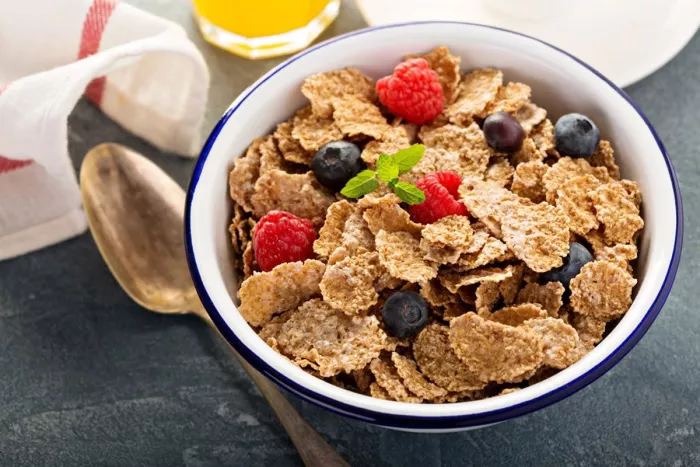Cocoa butter, derived from cocoa beans, is a common ingredient in various skincare products and chocolates, renowned for its rich texture and pleasant aroma. It has long been associated with moisturizing the skin and providing a deliciously creamy element to desserts. However, there are certain considerations and misconceptions surrounding cocoa butter, which may raise concerns for some individuals. In this comprehensive article, we will explore why cocoa butter might not be suitable for everyone and examine the factors that contribute to its potential drawbacks.
High in Saturated Fats
Cocoa butter is predominantly composed of saturated fats, which can be a concern for those striving to maintain a heart-healthy diet. High saturated fat intake has been linked to elevated levels of LDL cholesterol, commonly referred to as “bad” cholesterol, and an increased risk of heart disease. While cocoa butter is not as saturated as some other fats like coconut oil, it still contains a substantial amount of these fats, which may not be ideal for individuals with specific dietary requirements.
Allergies and Sensitivities
Cocoa butter, like many natural substances, can trigger allergic reactions or skin sensitivities in some individuals. Allergic reactions may manifest as redness, itching, rashes, or even swelling. While cocoa butter allergies are relatively rare, they can occur, making it important to conduct a patch test before applying cocoa butter-based skincare products to a larger area of your skin, especially if you have a history of sensitivities.
Comedogenic Properties
Cocoa butter is known to have moderately high comedogenic properties, meaning it has the potential to clog pores. This can lead to the development of acne and blackheads, particularly for those with sensitive or oily skin. While cocoa butter can be beneficial for those with dry skin, it may not be suitable for individuals prone to acne or those with a history of skin issues. Choosing non-comedogenic alternatives may be more appropriate for such cases.
Weight and Caloric Considerations
In the context of diet, it’s important to note that cocoa butter is calorie-dense. While it can be a source of healthy fats in moderation, excessive consumption can contribute to weight gain. Exceeding daily caloric needs can lead to obesity and related health issues. If you are on a calorie-restricted diet or aiming to manage your weight, it is essential to consume cocoa butter and cocoa butter-based products mindfully.
Risk of Foodborne Contaminants
The quality of cocoa butter, particularly in chocolate products, can vary significantly. In some cases, cocoa butter may be extracted and processed under conditions that do not adhere to strict quality standards. This can result in potential contaminants, such as heavy metals, pesticides, or other harmful substances, making their way into cocoa butter. Consuming such contaminated cocoa butter products can pose health risks.
Impact on Blood Sugar Levels
Cocoa butter is often used in the production of chocolate and various confectionery items. These products are typically high in sugar and carbohydrates, which can lead to rapid spikes in blood sugar levels. This may be problematic for individuals with diabetes or those who need to monitor their blood sugar. It’s crucial for such individuals to be cautious when consuming products containing cocoa butter and opt for sugar-free or low-carb alternatives.
Not Suitable for Vegans
Cocoa butter, like most fats derived from animal or plant sources, is not vegan-friendly. It is extracted from cocoa beans, which are plant-based, but the processing and production of cocoa butter often involve animal products. This may include the use of dairy in the manufacturing process of certain cocoa butter-based foods. Vegans, therefore, should exercise caution and ensure that the cocoa butter they consume is produced in a vegan-friendly manner.
Environmental Concerns
The production of cocoa butter is linked to concerns about sustainability and environmental impact. The cultivation of cocoa beans often involves deforestation, the use of pesticides, and unsustainable farming practices. This can result in damage to ecosystems and harm to the environment. Choosing sustainably sourced cocoa butter products and supporting companies with responsible supply chain practices is essential for minimizing these environmental concerns.
Cost Considerations
High-quality, pure cocoa butter can be relatively expensive, especially in comparison to other fats and oils commonly used in skincare products. The cost of cocoa butter-based skincare items can be a deterrent for some individuals seeking more budget-friendly options. If you are on a tight budget, there are alternative skincare products available that offer similar benefits at a lower cost.
Ethical Concerns
Cocoa butter production is linked to labor and ethical concerns, particularly in regions where cocoa beans are grown. Some cocoa farms may employ exploitative labor practices, including child labor and poor working conditions. This raises ethical questions about the use of cocoa butter in products and calls for the support of fair trade and ethically sourced cocoa butter products.
Conclusion
While cocoa butter has gained popularity for its use in skincare products and its contribution to the delightful creaminess of chocolates and desserts, it may not be an ideal choice for everyone. Its high saturated fat content, allergenic potential, comedogenic properties, and impact on weight and blood sugar levels are important considerations, especially for individuals with specific dietary and health requirements.
























